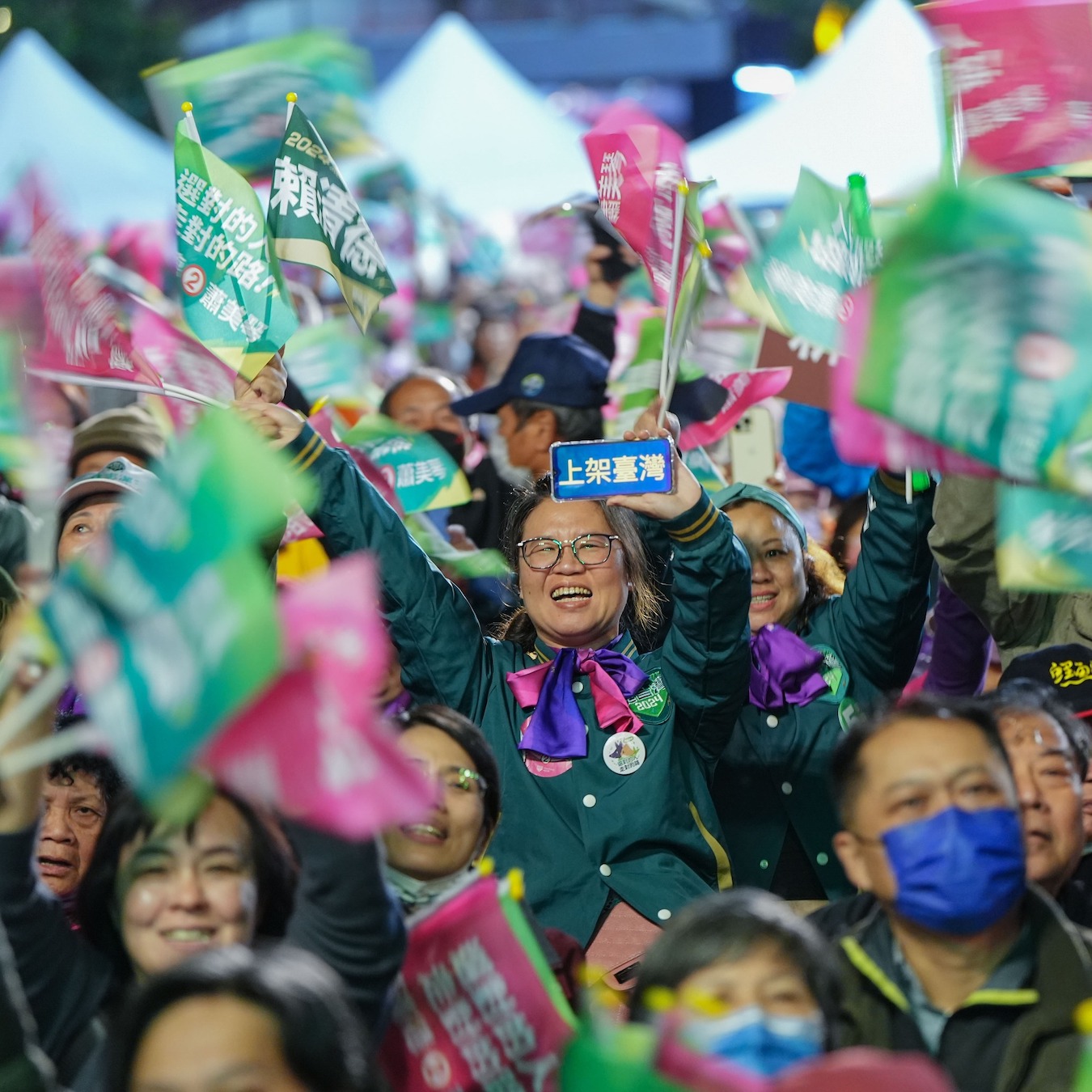by Brian Hioe
語言:
English
Photo Credit: HELLO/Facebook
CONTROVERSY HAS BROKEN out after comments by exiled Chinese journalist Wang Zhi-an on The Late Late Show
For the late-night program, Wang was invited to comment on Taiwan’s elections. Wang is a former television host for China Central Television and an investigative journalist for the Beijing News. Wang later started a YouTube channel.
Specifically, Wang’s journalism touched on sensitive issues regarding corruption in the Chinese government, hence his independent media platform at present. As such, Wang has been living in exile in Japan for the last two years. During his appearance on the Late Late Show, when asked, Wang stated that members of his family that were still in China had been harassed by authorities.
In particular, controversy has specifically centered around comments Wang made about DPP legislator Chen Chun-han. Chen has been wheelchair-bound for most of his life due to spinal muscular atrophy, but became a lawyer despite the many challenges he faced.
Wang was asked to comment on Taiwan’s democratic elections during his appearance. Wang’s comments were, in fact, mostly positive in tone, in that he expressed support for Taiwanese democracy. Nevertheless, Wang had a number of criticisms of Taiwan’s democracy, criticizing the KMT and DPP as failing to distinguish themselves from each other, and attacking the cult of personality around politicians that distracts from a substantive focus on policy.
Wang criticized the DPP for making a show out of Chen for the sake of elections, claiming that they dragged a disabled person onto the stage just for the sake of electioneering, and mocked Chen’s manner of speaking.
 DPP supporters at a rally. Photo credit: Lai Ching-te/Facebook
DPP supporters at a rally. Photo credit: Lai Ching-te/Facebook
Reactions were immediate, criticizing Wang’s comments as not funny in the least. In the fallout of the incident, the Night Night Show’s management apologized for failing to edit the clip before it was released. Chen Chun-han himself lashed out at Wang as a Chinese person, stating that he was in no position to comment on Taiwan’s democracy when China was undemocratic, and suggesting that Wang’s comments–or even his appearance on the show–were to undermine Taiwan’s democracy.
To this extent, the National Immigration Agency announced that Wang’s entry permit to Taiwan would be canceled and he would not be allowed to enter Taiwan for five years. This is with the claim that Wang’s appearance on a political program was inconsistent with his stated reason for visiting.
Though Wang may have indeed misrepresented his reasons for traveling, it is unlikely that Wang’s entry permit would have been canceled if there had not been such a public fallout over the incident. Although Wang’s comments were highly ableist, it is also the case that Chen’s response was to whip up nationalism against Wang–never mind that Wang himself was exiled from China because of his critical reporting.
Likewise, discriminatory comments or language by Taiwanese politicians are a regular feature of the political landscape. In fact, politicians who have made misogynistic, body shaming, and homophobic statements on numerous occasions such as Taipei mayor Ko Wen-je remain highly popular and highly electable, as the 2024 elections go to show. Yet this often prompts few reactions. The sensitivity over Wang’s comments, then, occurs only because he is Chinese.
It proves dismaying for the DPP to respond to the ableism of Wang’s comments by whipping up nationalism. To this extent, this further goes to demonstrate how Chinese–and more recently Hongkongers–indeed often serve as disposable props for the sake of election. One observes this with the experiences of authoritarianism faced by Chinese and Hongkongers cited to show why Taiwanese should not vote for a pro-China party such as the TPP, yet with backlash against plans to allow Hongkongers to come to Taiwan with the claim that they could be Chinese spies, or that they are somehow undeserving of democracy because of their misfortune to be too close to China.
It is the case that the DPP only fields a progressive slate of politicians from a diversity of backgrounds and life experiences because this can allow it to win elections, not because it necessarily cares about such issues. And, unfortunately, both parties come off all the petty here. It is often the case that Taiwanese mock Chinese nationalists for having brittle “glass hearts”, who are easily offended by the slightest suggestion of Taiwan having an independent existence. Is Taiwan to prove no better, then?

